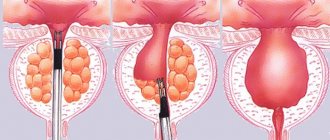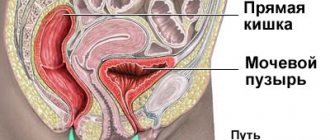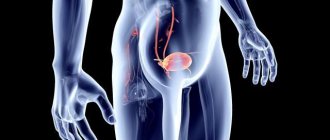Frequent urination in women is a common problem.
Fighting it can take a lot of time and effort from the fair sex.
Moreover, as doctors note, deviations from the norm are not always caused by pathological reasons.
There are also a number of completely physiological factors that can provoke changes in the volume and frequency of urination.
What are the main reasons for frequent urination in women, patients want to know, and what is generally considered a pathology, and what is a variant of the norm.
What additional symptoms may be accompanied by the disease, and how to make a correct diagnosis before starting therapy?
What is considered a deviation from normal urination?
Very frequent urination in women is a rather relative concept.
Many representatives of the fair sex forget about this.
People generally have a rather vague idea of what frequency of bladder emptying is considered frequent and what volume is considered large.
It is worth understanding these concepts before talking about pathology.
Urine formation occurs in the kidneys.
First, primary urine is formed, which contains a lot of water and valuable electrolytes.
Then it undergoes repeated filtration, concentrates, and only then is removed from the human body.
About 180 liters of primary urine are produced per day, but no more than 0.5-1 liters of secondary urine.
In order to allocate the specified volume, each woman needs an individual number of trips to the toilet.
On average, visiting the restroom 3 to 9 times a day is considered the norm.
It is worth remembering that night urination should either be completely absent, or repeated no more than once a night.
Naturally, it is not worth talking about diseases immediately when deviations from the norm appear.
After all, a lot depends on a woman’s lifestyle, her drinking regime and diet, as well as a number of other features.
However, if women have a frequent urge to urinate or trips to the toilet at night have become too frequent, this is a serious reason to be wary.
Nocturia: 13 reasons for night visits to the toilet
If you notice that you are starting to wake up at night due to the urge to urinate, you naturally have a question: why exactly is this happening? What has changed or perhaps been disrupted in the functioning of the excretory system?
A persistent tendency to awaken at night, associated with an imperative need to go to the toilet, is called nocturia (this spelling and pronunciation is traditional for domestic medicine; in the West, the term “nocturia” is usually used - Note Lakhta Clinic ). And of course, nocturia is not without cause, so ignoring this trend, to put it mildly, is not recommended.
The bad news is that there are many potential causes and factors that can lead to nocturia, ranging from ingrained habits to underlying serious conditions that require evaluation and treatment. Good news: we will now try to figure out, with the help of experts, the main and most common reasons that force you to interrupt your night's sleep for an urgent visit to the toilet.
What causes nocturia?
According to the American Urological Association (AUA), nocturia can be based on very different (in terms of etiopathogenesis) conditions, processes and diseases. However, first of all, it should be noted that nocturia itself is not a disease. This is always just a symptom, a sign of some more general pathology. In addition, it is important to emphasize the difference between nocturia and another urological symptom with a similar sound - polyuria. Polyuria means that the body produces an abnormally large amount of urine, while nocturia implies normal volumes of urination, but the urine is either not completely eliminated, or false urges occur when the bladder is empty.
Some pathological conditions and other causes that most often cause nocturia are discussed below.
Prostate enlargement
For many men, the prostate gland begins to increase in size with age. In this case, the urine outflow paths are partially compressed or blocked, which makes it difficult to completely empty the bladder. According to the Mayo Clinic, symptoms of the so-called. benign prostatic hyperplasia (prostate adenoma) is noticed by approximately every third man who has reached the age of 60. Moreover, nocturia is one of the most common and well-known symptoms of an enlarged prostate, which occurs in almost all cases. It is the inability to completely empty the bladder that makes a person feel the urge to urinate more often and more acutely, including during night sleep.
Bladder dysfunction
Bladder problems can occur in both men and women, although the causes are usually different. In the context of nocturia, this may be a phenomenon of "urinary frequency due to decreased critical bladder volume," says Mark Ellerkmann, MD, director of the Urogynecology Center at Mercy Medical Center in Baltimore. This condition can develop, in particular, due to age-related stretching of the bladder walls, which can no longer hold the usual amount of urine, due to the aforementioned prostatic hyperplasia, as well as due to a special syndrome known as overactive bladder.
Diabetes
Both nocturia and polyuria are often present in the clinical picture of diabetes, and it is important to understand the differences between the two conditions.
Polyuria is a classic symptom of diabetes. In the uncontrolled course of this serious disease (i.e., in the body of patients who remain without observation and adequate therapeutic support), an abnormally large amount of urine is produced, primarily due to the high concentration of glucose in the blood. But in cases of nocturia, the volume of urine produced is not increased; It’s just very inopportune – that is, at night while sleeping – that the urge to urinate arises.
In patients with diabetes, nocturia is usually caused by a combination of two factors, namely edema and diabetic neuropathy. In 2021, an article was published in the special periodical Journal of Wound, Ostomy, and Continence Nursing, where a significant increase in nighttime urination in older women with diabetes (compared to younger categories) is considered as a consequence of these two reasons acting simultaneously.
See materials on the Lakhta Clinic website:
Diabetes
Diabetic neuropathy
Edema (swelling)
According to Dr. M. Ellerkmann, nocturia can also be caused by swelling, which is often observed in patients with cardiovascular disease and/or chronic heart failure. Fluid retention in tissues can lead to swelling in any part of the body, but in this case, the legs and ankles are most often swollen, which causes frequent urination.
“When such patients lie down, the body tries to return excess fluid back into the circulatory system, whereas the function of the kidneys is to eliminate this excess,” explains M. Ellerkmann, specifying that the cycle of transport of excess fluid through the kidneys can lead to increased urination, including including at night.
Interstitial cystitis
According to the Centers for Disease Control and Prevention (CDC), interstitial cystitis is a chronic, non-infectious inflammation of the bladder that is very uncomfortable and is often called “sore bladder syndrome.” Interstitial cystitis is often detected during examination, the primary basis for which is the patient’s complaints of nocturia.
Pregnancy
Due to the rapid enlargement of the uterus and, as a consequence, increasing pressure on surrounding organs, pregnant women often complain that they want to go to the toilet almost constantly. Thus, the main (but not the only possible) cause of nocturia during pregnancy is mechanical compression of the bladder, which does not allow it to hold normal volumes of urine.
Neurobiological disorders
Physical damage to the spinal cord and other structures of the central nervous system can also cause nocturia, says S. Adam Ramin, MD, medical director of the Urology Cancer Center in Los Angeles. There are many known such conditions: spinal injuries, Parkinson's disease, strokes, etc. In particular, studies from 2012-19 confirmed that urinary incontinence and dysfunction of the lower urinary tract are one of the typical symptoms in the first 3-6 months after a stroke.
Infections
Widespread urinary tract infections often cause a sudden, strong urge to urinate, Mayo Clinic experts say. If you have such an infection, such urges will most likely occur during the daytime, but even if this remains a purely nighttime problem for someone, attention should be paid to it, especially if nocturia is combined with other symptoms of a urogenital infection, such as a feeling burning sensation when urinating, fever, pelvic pain, tenderness in the lower abdomen.
Age and ethnic factors
There are some risk factors for nocturia that are completely uncontrollable. In particular, age: According to Dr. M. Ellerkmann, an abnormally large volume of urination at night may be due to a decrease in the level of the antidiuretic hormone arginine vasopressin (AVP). “Normally, blood plasma at night contains an increased level of AVP, which, accordingly, inhibits urine production,” says the expert. “However, in elderly patients, the level of nocturnal secretion of AVP may be insufficient, which leads to age-related nocturia.”
According to statistics from the National Association for the Fight against Incontinence (urinary incontinence - Note from Lakhta Clinic ), the majority of people suffering from nocturia are over the age of 60 years.
Ethnicity. Nocturia is more common in black and Hispanic people, especially males. However, Dr. S.A. Ramin doubts that the reason here lies in any genetic or hereditary predisposition; rather, socioeconomic and even cultural factors are at play in many of these cases. “Black and Hispanic men tend to have less access to quality medical care and are less likely to see a doctor with these types of complaints,” explains the specialist. “In this way, the primary problems progress and the symptoms become more pronounced.”
Medicines
There are a number of medications that can cause nocturia. The most obvious culprit here is diuretics (water pills), but the AUA reports that some heart medications and mood stabilizers may also increase nocturnal bladder filling volumes. It is very likely that it is impossible or highly undesirable for medical reasons to stop taking such drugs in your individual case, but in many cases it is possible, in consultation with your doctor, to adjust the time of dosing so that the last dose does not fall in the late evening.
Sleep disorders
If you wake up several times a night because you urgently need to go to the toilet, then it is quite logical to assume that there are problems in the urogenital (genitourinary) system. However, in reality, the cause may be sleep disturbances as such.
“Obstructive sleep apnea can cause nocturnal polyuria through the release of atrial natriuretic peptide (ANP), a hormone that can stimulate the kidneys to produce increased volumes of urine,” says Mark Ellerkmann. – Sometimes patients wake up due to dyssomnia or restless legs syndrome, and, already awake, feel the need to empty the bladder. But it’s actually the sleep disorder that wakes them up, not the bladder.”
Psychological reasons
According to Dr. S.A. Ramin, in some cases, the cause of nocturia is anxiety, expressed in the degree of an abnormal state of mind.
“Some patients with high anxiety have chest pain or discomfort, others have increased bowel movements or develop diarrhea, but many anxious people complain of increased urinary frequency and urgency,” he says. “This can happen both during the day and at night, meaning a person with increased anxiety can definitely develop nocturia, even if there are no problems with the bladder or prostate gland.”
Mental illnesses such as depression or obsessive-compulsive disorder may also present in a similar way: Patients may feel like they “have to” go to the toilet every time they wake up at night, especially if they are sleeping lightly or have disturbed sleep phases. In such cases, a person goes to the toilet not because of the urge to urinate, but simply because he is used to doing it every time he wakes up.
Lifestyle Features
We assume that you are not in the habit of regularly drinking two liters of water before going to bed... and if you are, then it is better to give up this habit. The cause of nocturia may be simple: natural overflow of the bladder due to excessive amounts of liquid drunk at night. According to AUA recommendations, it is advisable to limit yourself two to three hours before bedtime, and it matters not only how much you drink, but also what exactly you drink: some drinks, such as alcohol or coffee, are themselves diuretics, that is, it is this factor that can increase nocturnal diuresis.
Based on materials from the Health website
Non-pathological causes of frequent urination
Doctors identify a number of reasons that are not pathological conditions, but under the influence of which the number of trips to the toilet may increase.
The main feature of these conditions is that urination occurs without pain.
Although it is frequent, it does not cause discomfort to the woman.
Among these conditions:
- the period of taking diuretics, which force the urinary system to work more actively, which may increase both the frequency of trips to the toilet and the volume of urine
- period of pregnancy, when the enlarged uterus puts pressure on the bladder, reducing its volume and, accordingly, its ability to accumulate fluid
- a diet consisting of pickles, smoked meats, and spicy dishes can affect urine output, as it irritates the bladder receptors
- drinking large quantities of coffee and other caffeinated drinks, as well as beer
- cooling of the lower extremities often entails a desire to visit the toilet, and this is a normal reaction of the body to hypothermia
- the period of menstruation also entails more frequent trips to the toilet, since to renew the endometrium the body retains fluid and then is forced to actively remove it
About urination during menopause
Frequent little urination in older women often signals the onset of menopause.
Contrary to popular belief, menopause is a normal state of the body, and not a pathology.
Therefore, it is impossible to include it in the group of diseases.
However, the changes that occur in the female body at this time are very specific.
The basis of all changes is a decrease in estrogen production.
Everyone knows that this is the main sex hormone in the female body.
It is responsible not only for reproductive functions, but also for controlling the tone of the urethra and vagina.
Also, thanks to its effect, adequate blood supply to these organs is ensured.
As soon as there is little estrogen in a woman’s body, the tone and blood supply to the designated organs decrease.
The result is quite predictable: the desire to go to the toilet more often develops.
Some representatives of the fair sex begin to suffer from a problem such as age-related urinary incontinence.
After 50, for a significant number of women the issue becomes especially acute.
Sometimes it is possible to achieve at least some positive dynamics only with the help of operational approaches.
Frequent urination in women: possible diseases
The reasons for the frequent urge to urinate in women can also lie in various pathologies.
They must not only be diagnosed promptly, but also treated.
Often a feature of pathological changes in the body is the appearance of complaints of pain in the lower abdomen.
It intensifies during the act of emptying the bladder or, alternatively, appears immediately after it.
As doctors note, all pathological causes can be divided into several large groups.
Are you worried about frequent urination?
Frequent urination is the urge to go to the toilet, which is observed in an adult more than 10 times a day, provided that he drinks no more than 2 liters of fluid per day. In children under 12-14 years of age, the normal frequency of urination exceeds that in adults and depends on age.
The amount and/or volume of daily urine excreted may increase due to various diseases. Thus, similar symptoms can be caused by diseases of the prostate in men and uterus in women, inflammation of the kidneys and even a brain tumor. Doctors of narrow specialties should understand the causes and prescribe appropriate treatment: urologist, nephrologist, gynecologist, endocrinologist and neurologist. The purpose of our publication is to provide guidance on which specialist should be visited first.
The norm of going to the toilet in small ways Before considering the causes of frequent urination, you need to evaluate whether we are really talking about frequent urination. To do this, familiarize yourself with the physiological norms:
| Gender, age | Frequency of urination per day | Daily urine volume |
| Adult men | 4-6 | 750-1600 (75% of the liquid drunk per day) |
| Adult women | 4-8 | The same amount increases during pregnancy |
| Children 0-28 days | up to 25 | 170-500 ml |
| Up to a year | to 10 | 250-810 ml |
| 3-5 years | 6-8 | 600-900 ml |
| 5-10 years | 5-7 | 700-1200 ml |
| 10-14 years | 4-6 | 1000—1500 ml |
These are the values that should be observed under the following conditions:
- human body temperature – 36.2-36.9°C; ambient temperature – less than 30°C;
- 30-40 ml/kg of body weight was drunk (this figure will be different for children under one year of age);
- did not use diuretics in tablets, as well as rosehip decoction, coffee, green tea in large quantities; no shortness of breath and/or rapid breathing.
At the same time, a person should not urinate at night, a maximum of 1 time, and the volume of urine excreted should not exceed 200-300 ml in an adult.
Advice! If your or your child’s numbers are higher than the above norm, then in order to understand the etiology of this condition, you need to measure the total volume of daily urine, and also pay attention to the accompanying symptoms. Further we will consider frequent urge to go to the toilet in conjunction with these signs.
If urination is frequent and painful.
The appearance of this symptom indicates problems of the genitourinary system in both women and men. The cause is indirectly indicated by the location of the pain, so we will look at it. Pain in the lumbar region.
If your kidneys hurt and you experience frequent urination, this usually indicates the following pathologies:
Pyelonephritis. The acute process is difficult to miss: there is an increase in temperature and severe pain in the lower back, which can radiate to the abdomen. With an exacerbation of chronic sluggish pyelonephritis, frequent urination and pain in the kidneys and lower abdomen come to the fore. In addition, the volume of daily urine will also be increased, and single portions, on the contrary, will be reduced. The color of urine is usually unchanged.
Urolithiasis disease. Single portions of urine are reduced, the color is either normal, or an admixture of blood is visible. People urinate more often during the day, but walking a few times is also possible at night. Also, the temperature often rises and the urine becomes cloudy. Pain in the lower abdomen Pain in the lower abdomen that accompanies frequent urination indicates problems in the bladder neck and urethra.
If the bladder hurts and frequent urination, this indicates a pathology of the lower parts of the urinary system:
Inflammation of the urethra (urethritis). At the same time, the daily volume of urine increases, the urine itself becomes cloudy, and mucus, pus or blood can be seen in it with the “naked eye.” A characteristic symptom is that, despite the painfulness of the urination process, there is a persistent desire to urinate at the very end (when the entire volume of urine has been released).
Cystitis. This disease is the most common cause of frequent urination. In this case: the urine is reddish, sometimes pus is visible in it, it is released with pain in the pubic area, in small portions, with an imperative urge. Body temperature is elevated, symptoms of intoxication are observed: weakness, nausea, loss of appetite.
Tumors in the bladder neck area may have symptoms similar to cystitis, but there will be no symptoms of intoxication, pus in the urine or increased body temperature. Bladder stones can have similar symptoms if the stone blocks the flow of urine. An increase in temperature is possible, but there will be no symptoms of intoxication. The pain may go away with taking antispasmodics and changing body position.
Prostate adenoma. In this case, the urge to urinate is not painful, but the process itself is felt by pain in the suprapubic region, a feeling of incomplete emptying of the bladder. Night urination is also noted.
Neurogenic (overactive) bladder. In this case, the person’s condition is not disturbed, the urine does not change color, but frequent urination occurs after a strong urge, which is painful.
Narrowing of the urethra due to acquired or congenital causes. Apart from difficult and painful urination, there are no other symptoms. Frequent and painless urination
Frequent urination without pain is a symptom of a huge number of diseases.
Let's try to consider some of them. Physiological causes in adults and children
Urination may become more frequent when: consuming large amounts of spicy, sour and salty foods, alcohol. There will be no pain, an increased volume of light urine is released, more than 200 ml at a time. Other symptoms include only mild tickling in the urethra during urination; stress, tension, anxiety: a large daily amount of urine of normal color is released, while the single volume of urination is not increased. There may be a feeling that you need to urinate more, although the person has just gone to the toilet; pregnancy: in this case, other signs indicating this condition will be observed; along with menstruation; after freezing - for several hours. Pathological causes They can be divided into those that cause predominantly nighttime and increased urination around the clock. Frequent urination at night can be caused by: Cardiovascular insufficiency. In this case, swelling will be noted in the legs, sometimes even higher (on the abdomen), interruptions in the functioning of the heart or pain in it, and shortness of breath. Diabetes. Increased thirst and dry mouth are also noted; the skin becomes dry, wounds and cracks easily appear on it, which do not heal well. Adenoma and carcinoma of the prostate. Symptoms other than nighttime urination may not be noticed. During the day, a man can feel quite well, only urinate in small portions. You can get more information about these and other male diseases that lead to frequent urination from the article: The main reasons for increased frequency of urination in men. A person will urinate equally often both during the day and at night if: diabetes insipidus. At the same time, he is constantly tormented by thirst and drinks a lot, but, unlike his sugar “brother,” there is no dry mouth, dry and itchy skin; cystocele (prolapsed bladder): more common in women who have given birth. In addition to painless frequent urination, urinary incontinence will also be noted: when coughing, lifting heavy objects, laughing, and later during sexual intercourse; spinal cord injuries and tumors; weakness of the muscles that make up the wall of the bladder. The disease begins in childhood and is characterized by no changes in the general condition, but only frequent urination in small portions of urine, as well as a strong urge to urinate; uterine fibroids. In this case, painful periods, intermenstrual bleeding, and a large volume of monthly blood loss will also be noted; taking diuretics.
What to do if you have frequent urination
Given the large number of different causes of this condition, treatment for frequent urination should be prescribed by a doctor:
- cystitis, urethritis and pyelonephritis are treated with antibiotics, less often with antiviral agents;
- diabetes insipidus is treated with synthetic vasopressin; cystocele – surgically;
- for diabetes mellitus, either insulin or tableted hypoglycemic drugs are prescribed;
- for urolithiasis, the treatment of choice is stone crushing with laser or ultrasound;
- adenoma and prostate cancer are treated with surgery, only the volume of interventions will be different.
Which doctor should I contact?
If you experience frequent urination, you need to consult a therapist and undergo an initial examination: take blood and urine tests, and undergo an ultrasound of the urinary tract. If you have kidney diseases, you should be treated by a nephrologist, and if you have bladder pathology, you should be treated by a urologist. Diabetes (sugar and non-diabetes) is treated by an endocrinologist.
Remember - it is better to treat not the effect, but the cause!
Doctor - urologist of the urological center V.N. Popov
Pathologies of the urinary system
Discomfort that occurs with diseases of the urinary system is the most common in medical practice, as doctors note.
Moreover, it can even be caused not by one, but by several diseases at once.
Among them:
- cystitis is a pathology associated with inflammatory processes in the bladder itself, to which the body predictably reacts with pain, increased urination and other unpleasant symptoms
- Urethritis is another common problem, which often acts not so much as an independent disease, but as a symptom, but can cause a lot of inconvenience to the patient, since the inflammatory process in this case is localized in the urethra
- Frequent and copious urination in women may indicate pyelonephritis, which affects the renal pyelocaliceal system (in this case, other alarming symptoms often appear, indicating pathology)
- urolithiasis may be another reason for the appearance of specific complaints that force the fair sex to seek help from a doctor
It is also worth considering that some women develop more rare pathologies.
For example, a doctor in practice may encounter bladder hyperreactivity.
With it, the organ reacts sensitively to even the slightest changes.
Also, on the contrary, atony of the organ, due to which it is unable to retain urine inside itself.
Any of the pathologies requires not only timely diagnosis, but also full treatment.
Frequent urination due to diseases of the genital organs
Frequent urination of women during the day may indicate not only pathologies of the urinary system, but also problems in the sexual sphere.
As doctors note, there may be several reasons for the formation of a symptom.
First of all, the doctor will always rule out fibroids.
Myoma is a benign neoplasm that develops in the uterine cavity.
In this case, the tumor can imitate pregnancy, putting pressure on the bladder, mechanically reducing its volume.
The result is predictable: as during pregnancy, a woman will visit the toilet more often than normal.
In addition to uterine fibroids, it is always worth excluding genital prolapse.
This pathology is especially common among representatives of the fair sex who have already gone through the process of childbirth.
Naturally, if the uterus prolapses, other structures located in the pelvis are displaced and may be compressed.
The bladder in this case is no exception.
The result may be the need to go to the toilet more often than normal.
It is important to remember that when the genital organs prolapse, women may urinate with blood.
Since organs can be damaged due to their normally atypical location.
Frequent urination due to endocrinological pathology
The reasons may lie in endocrinological pathologies.
Doctors, like patients, often forget about this group of ailments, immediately dismissing them from the diagnostic search.
And this, meanwhile, is a serious mistake!
First of all, you should pay attention to excluding diabetes mellitus.
With this pathology, due to a lack of insulin, the body is forced to actively remove glucose from the body on its own.
It is the kidneys that do this first.
Glucose pulls water with it, which leads to the need to go to the toilet more often and urinate in larger volumes than usual.
It is important to remember that pain is not typical for diabetes.
Additionally, it is important to exclude diabetes insipidus.
In this case, the problem lies not in the disruption of glucose and insulin metabolism, but in the incorrect functioning of the hypothalamic-pituitary system.
Diabetes insipidus is characterized primarily by increased fluid intake.
As a result, active urination, which increases both in frequency and volume.
Additionally, it is worth assessing the function of the adrenal glands and the activity of the thyroid gland.
These endocrine organs may also influence the frequency of toilet visits in women.
STDs: a common factor in frequent urination
Often, complaints of a weak stream and frequent urination in women indicate the development of one of the infections that is spread sexually.
For example, it could be mycoplasmosis, trichomoniasis, chlamydia, ureaplasmosis or another pathology from this group.
Representatives of the fair sex often do not understand how STDs and the urinary system are related to each other.
In practice everything is very simple.
The close proximity of these organs plays a cruel joke, leading to the appearance of unpleasant symptoms in one system when the other is affected.
The answer to the question of which STDs cause unpleasant symptoms is quite obvious.
Primarily these are bacterial infections.
However, with viral pathologies, the formation of complaints is also quite possible.
Moreover, if the kidneys hurt with frequent urination in women against the background of an existing STD, this is a reason to think that the infectious process has penetrated deep into the body.
And he began to destroy not only the genitals, but also other systems.
Frequent urination and possible additional symptoms
It is quite easy to understand what type of urination is considered frequent in women.
However, it is also important to consider additional symptoms.
They may appear in a representative of the fair sex in one case or another.
After all, symptoms allow the doctor to guess the nature of the disease and outline the circle of diagnostic search.
For example, as doctors note, during ovulation there will be no additional symptoms that cause discomfort to the patient.
She will only complain about frequent visits to the toilet.
With pyelonephritis the situation is often different.
Problems with emptying the bladder and a temperature of 37 in women often indicate a viral or bacterial infection.
It is also worth considering the presence of symptoms such as discharge of blood and pus from the urethra.
These are often quite alarming signs that require the doctor to carefully study the situation and carefully monitor it.
It is also worth considering that representatives of the fair sex may complain of general weakness, malaise, and a feeling of decreased performance.
Another common complaint is the feeling that the bladder is not completely emptied.
It is worth remembering that nausea and frequent urination in women is a possible combination, and it does not necessarily indicate pathology.
On the contrary, it may be a sign of pregnancy.
Causes and symptoms of frequent urination
There are physiological and pathological frequent urination. In the first case, the symptom goes away on its own, no therapy is required. In case of a pathological process, especially if there is frequent urination with pain, treatment is required.
There are such physiological conditions that affect the frequency of visiting the toilet:
- Increase fluid intake.
- Pregnancy. An enlarged uterus simply puts pressure on the bladder, causing a frequent urge to urinate.
- Hormonal changes that occur during menstruation or menopause.
- High blood pressure, stressful situation, hypothermia.
Pathological causes of frequent urination in both sexes:
- Pyelonephritis. This is an inflammatory process in the kidney area. In this case, the temperature rises, the urine becomes cloudy, there is a tightening in the lower back, and there is pain when emptying the bladder.
- Urethritis. This is the name of the inflammatory process in the urethra. Even after visiting the toilet, the bladder does not seem to be completely emptied. Urination is accompanied by a burning sensation. Similar symptoms are caused by cystitis (inflammation of the bladder).
- Urolithiasis disease. This is the name given to the formation of stones in the organs of the urinary system. This condition is accompanied by painful sensations; pus or blood impurities can be seen in the urine.
- Diabetes. Most often, there is frequent urination without pain at night.
Causes and symptoms in men
Frequent urination in men can provoke the following pathologies:
Prostatitis is inflammation of the prostate gland. A man feels pain during urination, ejaculation, and a burning sensation. Unpleasant sensations appear in the area between the scrotum and anus. In some cases, patients complain of pain in the lumbar region.
Prostate adenoma is a benign neoplasm. In addition to the main symptom, there is a weak urine flow, discomfort during emptying of the bladder, which still seems full after urination. In the future, the opposite condition may appear - urinary retention. The same symptoms are caused by prostate cancer.
Bladder neck sclerosis is a complication after cystitis that appears if there is no treatment. At first, urination becomes more frequent, but after a while, urinary retention occurs.
Causes and symptoms in women
Frequent urges in women can provoke the following pathologies:
endometriosis – growth of the uterine lining that spreads to the bladder;
uterine fibroids – an increase in the size of the uterus puts pressure on the bladder;
inflammatory process, the appearance of neoplasms in the genital organs.
Which doctor should I go to if I have frequent urination?
Treatment of frequent urination in women and pain should only take place under close medical supervision.
Unfortunately, not everyone knows which doctor to contact if alarming symptoms appear.
First of all, it is recommended to visit a urologist.
The doctor will be able to assess the urinary system, understand what the patient’s main complaints are, and what remedies can be used to correct them.
In addition to the urologist, you may need to consult a gynecologist.
In the event that the problem reliably lies in the genital organs, and not in the urinary system.
If you suspect infection with any STD, you should contact a venereologist.
If gynecological, urological and venereological diseases have been excluded, it is worth visiting an endocrinologist.
Perhaps the problem lies in diseases of the endocrine system, which require no less attention than other pathologies.
Before contacting a specialist, answer the following questions
1. Do you experience frequent urination (>8 times during the day, >1 time at night)? 2. Do you have urgent (sudden) urges that are difficult to control? 3. Do you experience involuntary urinary discharge? 4. Do you use urological pads? 5. Do you have neurological or other diseases that can affect bladder function (consequences of stroke, neuropathy due to diabetes mellitus, osteochondrosis, herniated discs)? 6. Have you had brain/spinal cord or pelvic surgery? 7. Do you have inflammatory diseases of the genitourinary area that are difficult to treat with antibiotics? 8. Are there any discomfort or pain in the bladder, genitals, or perineum?
If you answered yes to 2 or more questions, you should contact a specialist.
Diagnostic measures for frequent urination
When it becomes clear where to go with the emerging alarming symptoms, a new question arises that worries many patients.
How the diagnosis is carried out and the causes of the emerging deviation are identified - that’s what worries patients.
First of all, it is recommended that a representative of the fair sex undergo a urine test, as well as a gynecological smear.
These two studies allow us to exclude a fairly wide range of diseases.
For example, after assessing the composition of urine, a doctor may reject the diagnosis of diabetes mellitus if there is no glucose in the urine.
Smear examination is of great diagnostic importance.
Urine testing for STDs may not be as effective in this regard, since urine itself is not sterile.
It is possible to obtain more diagnostically significant data from a smear if it is examined correctly.
To make a diagnosis, the doctor may use microscopy, culture, PCR and other techniques.
We must not forget about the possibility of using instrumental techniques.
Ultrasound, for example, is of great importance.
With its help, you can evaluate not only the genitals, but also the system for removing urine from the body.
Frequent urination in women: principles of drug treatment
After the tests are over and the diagnosis has been established, the woman is prescribed therapy designed to correct her problem with maximum effectiveness.
In most cases, doctors try to make do with pills and suppositories without resorting to invasive intervention methods.
Medicines that can be used include:
- uroantiseptics that can kill pathogenic microorganisms in urine (for example, Urolesan, Uronephron, etc.)
- prebiotics and probiotics designed to restore the microflora of the intestines, vagina and other parts of the body, which often suffers due to the therapy chosen by the doctor
- drugs from the group of antispasmodics, which act as symptomatic therapy and are used to relieve pain, which often reduces the quality of life of patients (No-shpa, Drotaverine, etc. are prescribed)
- Insulin therapy is the method of choice if the patient has confirmed diabetes mellitus
Herbs for frequent urination in women can also be used for therapy.
But only under close medical supervision and with the doctor’s approval.
Since the symptom is quite formidable, self-medication can only do harm, and not alleviate your condition.
Prevention
In order not to think in the future what to do if you urinate frequently, it is recommended to take preventive measures. To do this you need:
- adhere to the correct water regime, eat healthy food;
- do not abuse alcohol;
- give up nicotine;
- periodically undergo preventive examinations with doctors, promptly treat identified pathologies;
- monitor the culture of intimate life.
Doctors often encounter patients who come with the complaint: “I often go to urinate.” But many people delay visiting the doctor, aggravating the process. Timely identification of the cause and proper treatment can get rid of this unpleasant symptom, returning you to your previous life.
If, according to a doctor's opinion, a man is diagnosed with prostatitis, then treatment of the prostate gland will be required.
Make an appointment
Frequent urination in women: features of antibiotic use
Often representatives of the fairer sex wonder what antibiotics to take in order to get rid of the unpleasant symptoms that bother them.
As it became clear from the above, it is impossible to simply prescribe an antibiotic that would be an effective remedy in any case.
Many women make a serious mistake by taking a course of antibacterial drugs as soon as alarming symptoms begin to bother them.
In this case, of course, no attention is paid to thorough diagnosis.
Antibiotic therapy does more harm than real benefit.
Drugs for treatment, including antibacterial ones, should be chosen only by the attending physician.
After there are known diagnostic search results.
It is important to remember that antibiotics are not a cure for all diseases.
In some cases, they can even cause even greater damage to the body by disrupting the natural defense mechanism.
Antibiotics do not treat endocrine and viral fungal diseases!
Treatment
How to treat frequent urination? Before starting treatment, you will need to find out the cause of this symptom. If it was provoked by physiological factors, then there is no need to worry. The trouble will go away on its own. Pregnant women need to be careful. It is recommended to visit a doctor if a burning sensation is present.
If you suspect the development of pathology, you need to visit a doctor. Initially, you should go to a general practitioner, who will most likely refer you to a urologist. To understand how to treat frequent urination in men and women, you will need to make an accurate diagnosis. To do this, the patient undergoes a series of studies.
To get rid of an unpleasant symptom, the underlying pathology is treated. Doctors also often prescribe antispasmodics, antibacterial drugs, especially if there is an infection, and drugs to eliminate inflammation. You should not self-medicate; medications should be prescribed by a doctor.
When may you need surgery to treat frequent urination?
Unfortunately, treatment for frequent urination in women cannot always be limited to taking medications.
In some cases, full surgical intervention is still required.
Only with its help can one correct the pathology from which the fair sex suffers.
The following ailments may be indications for surgery:
- uterine fibroids are a pathology for the correction of which surgery is used in a significant number of cases, especially if the fibroids are large in size
- urolithiasis sometimes requires surgery if it is necessary to remove stones that are in the wrong places or have a specific shape
- uterine prolapse also requires correction through surgery, since organs cannot be returned to their normal position in any other way
- atony of the bladder is often corrected with the help of surgery, since otherwise it is often impossible to correct this deviation, despite the efforts of doctors
Naturally, the issue of surgical treatment is always decided on an individual basis.
And it depends not only on the indications, but also on the woman’s readiness for intervention.
However, it is important to remember that in some cases surgery is the only way to a comfortable life.
In which there will no longer be frequent trips to the toilet, pain and other unpleasant symptoms.
Common bladder problems for women
11.09.2019
Do you visit the toilet often? It's tiring and inconvenient, but it can be cured!
Women are much more likely than men to experience discomfort associated with infections. Not only because of frequent inflammation of the organ. The anatomical design of the urethra , pregnancy and childbirth , hormonal changes and even a sedentary lifestyle contribute to various diseases of the urinary system.
Fortunately, there are increasing opportunities to treat and prevent the consequences of urinary tract diseases. To do this, you need to consult a doctor . Sometimes, for therapy to be effective, you should visit several specialists - a urologist , a gynecologist , and also a psychologist . Even if treatment lasts a long time, it should not be canceled. And also, you don’t need to give up your sexual and social life.
Urinary tract overactivity
This disease consists of a sudden urge to urinate , even if the bladder is not full. The reaction is instantaneous, sometimes the person does not have time to run to the toilet. The causes of the disease are not reliably known. It is assumed that neurological disorders, a sedentary lifestyle, obesity , and excess stimulants are the basis.
Research
The urologist will give a referral for tests and ultrasound of the urinary system. This will eliminate possible defects in the anatomical structure and check whether the person has an inflammatory process, stones or other diseases. Sometimes a urodynamic test is performed. Research is necessary because hyperactivity is sometimes confused with cystitis - the symptoms are similar.
Treatment
Therapy begins with keeping a urination for 7-14 days. The patient indicates the method, frequency, quality and disorders of urination . Then the doctor bladder training , which involves urinating . He will adjust the diet and prescribe special medications.
Urinary incontinence
The disease most often manifests itself as loss of bladder . A person simply sneezes, coughs or laughs and suddenly feels that their underwear is wet. Causes include urinary tract infections, gallstones, and certain medications. Occurs in women who have gone through difficult childbirth , as well as during menopause . This condition may be caused by an overactive urinary system.
Research
It is necessary to do general tests and urine , as well as an ultrasound . The person must present for this test with a full bladder . The doctor will check to see if urine during the spasm that accompanies the cough.
Treatment
Exercises for the Kegel muscles are prescribed. The training consists of stopping the flow of urine by suddenly tensing the muscles and relaxing them after a few seconds. If exercises do not help, then vaginal preparations with estriol and medications that reduce bladder .
Good effects in the treatment of urinary are achieved by treatment with botulinum toxin ( Botox ). To treat stress urinary , such as after childbirth , surgical procedures are used to support the bladder .
Recurrent cystitis
A constant urge to urinate and discomfort, a burning sensation in the lower abdomen , are the first signs of infection. With frequent urges, it is difficult to empty the bladder completely. The release of every drop of urine is accompanied by intense pain and burning. When such symptoms appear, you need to consult a urologist .
Research
Referrals for tests .
Treatment
If intense pain appears in the lower abdomen or lumbar area, in addition to high fever and nausea , you should urgently consult a urologist . The doctor will prescribe an antibiotic to prevent pyelonephritis . Treatment lasts from a week and should not be interrupted, even if the symptoms of infection have completely disappeared. Only a certain dose of the drug will get rid of bacteria.
Published in Urology Premium Clinic











